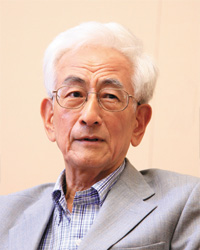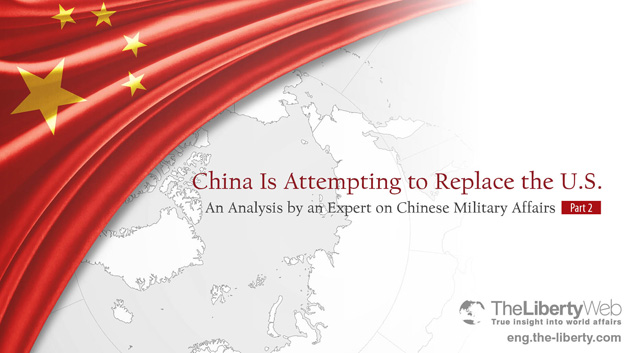An Analysis by an Expert on Chinese Military Affairs (Part 2)
China Is Attempting to Replace the U.S.

Shigeo Hiramatsu
(an expert on Chinese military affairs)
Born in 1936. After earning a master’s degree from Keio University’s graduate school, he worked at the National Institute for Defense Studies (NIDS). He successively held posts such as the chief of the department at NIDS and professor at Kyorin University. His specialty is the military affairs and diplomacy of present-day China. His main books are “How Has China Unilaterally Changed the National Border” (published by Soshisha) and “Japan Will Be Sucked into Wars that China Triggers” (published by Tokuma Shoten Publishing).
Q: How large and advanced is the Chinese military actually?
Hiramatsu: When you study Chinese military affairs, you will find that China is doing research on U.S. military strategy and trying to take the place of the U.S. when an opportunity presents itself. Nuclear weapons are a central feature to U.S. military strength. The number of soldiers itself is actually smaller than expected. Instead, the U.S. Marines carry weight in other countries. In order to assure domestic stability and security, there is a militia force called the National Guard. Under the premise that other countries will not attack the U.S. because of its nuclear deterrent capability, the Marines militarily intervene in times of emergency outside of the country and the National Guard keeps order within the country. The U.S. military force is mainly composed of “nuclear weapons”, the “Marines”, and the “National Guard”.
On the other hand, China has an influence on the world and at the same time defends the country by possessing nuclear weapons and nuclear missiles. One of the big differences between China and the U.S. is that America is an almost independent continent while China is bordered on the north by Russia and on the west by India.
Before China went nuclear during Mao Zedong’s days, it had a huge military of up to 4 or 5 million troops in case of foreign invasion. However, since Mao equipped the Chinese military with nuclear arms, China no longer has to employ human wave attack tactics to defend the country, so Deng Xiaoping cut one million troops and modernized the conventional military forces.
Q: We can see how nuclear weapons work as a deterrent. But is it that easy to possess nuclear weapons?
Hiramatsu: In fact, compared to a bomber and an aircraft carrier, it is easier and more inexpensive to have nuclear weapons. It is absolutely impossible for today’s China to create a bomber, a large jet aircraft, and an air craft carrier, but it owns nuclear arms. On the other hand, ordinary Japanese naturally associate “nuclear weapons” with the atomic bombings on Hiroshima and Nagasaki. If someone says that Japan should have nuclear arms, they overreact to it and dismiss it as an absurd idea. This is the reality of Japan.
Q: After all, which is superior, Chinese or Japanese military power?
Hiramatsu: Some people say that the Japan Self Defense Forces are quite high level whereas the Chinese military is low level. To be sure, the level of the SDF is partly higher than the level of Chinese military, but China is now trying to have conventional forces like the highly mobile U.S. Marines. China will eventually go to the level in which it competes in the ability of a missile and the development of space technology.
Japan is used to being protected by the U.S. and cannot even conduct military research openly. Under such circumstances, Japan is no match for China. Japan has come to a period where it must think seriously about its own national defense, considering the possibility that the Japan-U.S. relationship goes sour or U.S. military power in Asia declines.



















